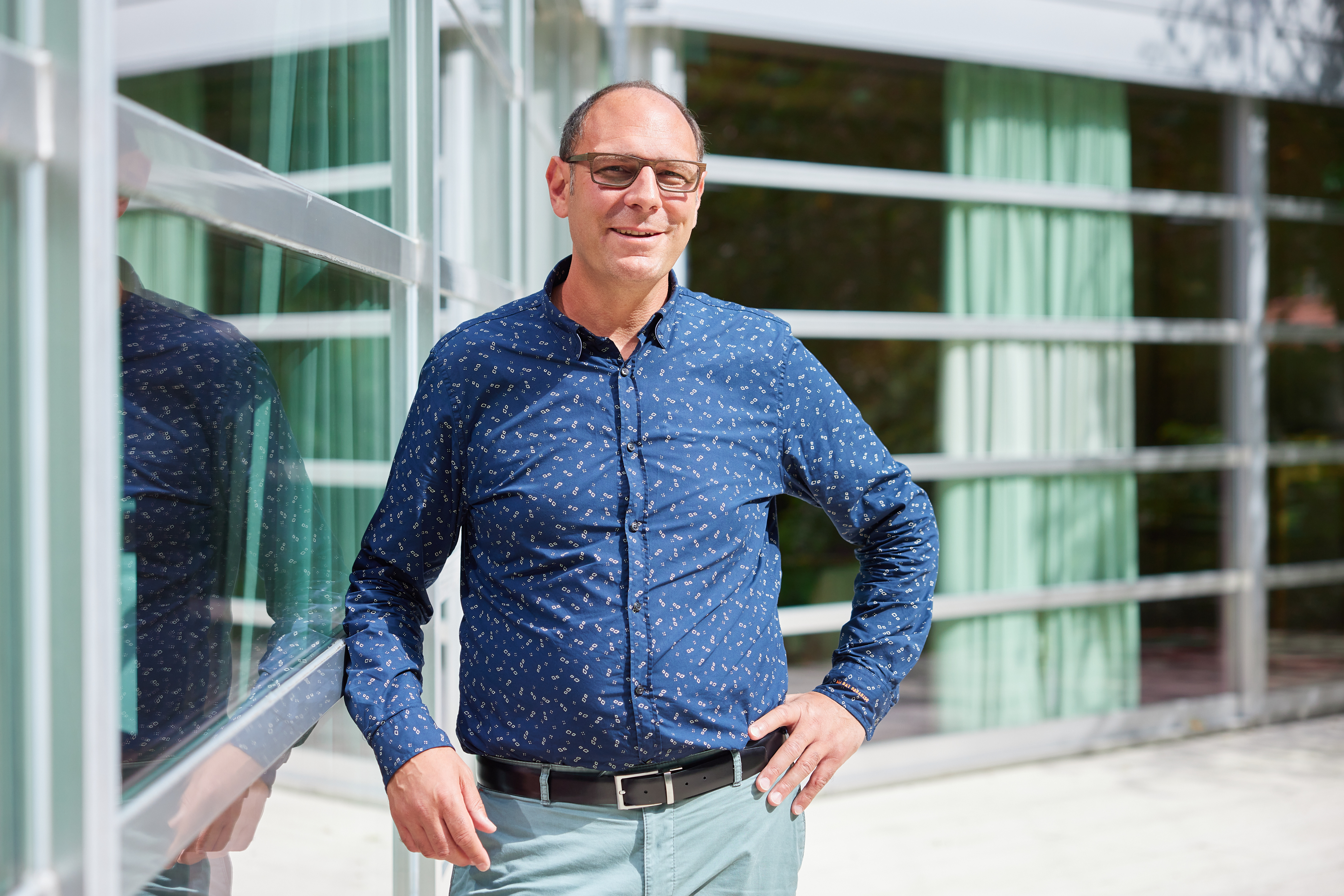BGHS.NEWS
Practitioners in Talk Part 30
::Non-university careers::
Practitioners in Talk Part 30
Many ways lead out of the BGHS. But where do postdoctoral paths lead? We talk to historians and sociologists who have taken up their career outside the university. Andreas Wenninger spoke with us about his work at the Bavarian Research Institute for Digital Transformation (bidt).

[Figure 1: Andreas Wenninger © bidt/Klaus D. Wolf]
Andreas, you did your PhD in Sociology in 2017. If you remember starting your career: How did you find your way into the job?
I trained as an office clerk, took my Abitur on second chance education and then studied. Relatively soon after graduating, I worked as the coordinator of the research training group “World Society” at Bielefeld University. That was from 2008 to 2012, and at the same time I started working on my dissertation. Looking back, I would say: that’s how I got started in the profession I have now. In 2015, I then moved to the TU Munich, completed my dissertation there and did teaching and research here. You also have to know the academic business “from the inside” in order to successfully manage coordination tasks in science. Even now, I have many research-related coordination tasks. Since 2019, however, I have been employed at a non-university institute: the Bavarian Research Institute for Digital Transformation (bidt), which belongs to the Bavarian Academy of Sciences and Humanities.
How did you come to your current position?
There was a job advertisement that I thought: I fit the bill both with my professional experience of coordinating research projects and with the topic of my dissertation and my postdoc projects: I have been working on the topic of “media and public communication” since my dissertation. Now I am the research coordinator here at bidt for projects that examine, among other things, changes in the digital public sphere.
You work for the Bavarian Research Institute for Digital Transformation. Where do you work exactly?
The bidt is one of several institutes that have been founded in Germany in recent years to study the effects of the digital transformation on society. On the one hand, bidt conducts interdisciplinary research projects itself. In our “Think Tank” department, for example, regular surveys have been conducted since March 2020 on the topic of the home office before and during the corona pandemic, the results of which had a comparatively large response in the media. On the other hand, bidt funds research projects in Bavaria: interdisciplinary research projects on digital transformation in which social and technical science approaches are combined. The results of our projects are addressed to scientific communities, to the interested public as well as to politics and business. bidt is funded by the Bavarian State Ministry for Science and the Arts.
[Figure 2: Andreas Wenninger at work © bidt/Klaus D. Wolf]
You are research coordinator at bidt. What are your most important tasks in this job?
I am mainly active in the area of research. Research funding, for example, is an area of responsibility in which the tendering process, the selection of projects, the review process in accordance with the rules, and the consultation of external experts have to be organised. Following the approval of the successful projects, an onboarding process takes place, which begins with a so-called grant agreement. While the projects are running, we organise six to eight meetings per year to network the actors. At these “sprint reviews”, the project partners give short presentations: What have they done since the last meeting? Where do they stand at the moment? Where do they want to be before the next sprint review? And finally, I support the projects in communicating their results to the broader public, for example through a post on our blog or a workshop that we organise together with our colleagues. Our professional dialogue team at bidt actively supports us in this.
What tips do you have for colleagues from sociology or history who are interested in the occupational field you are in?
Shortly before I applied for my current job, I thought about enrolling in a further education course in science management at the TU Munich, where I was employed at the time. And there are even degree programmes in science management. But I think that people with experience in scientific work can apply for jobs that involve coordinating research, even without special training or a degree in science management: in collaborative research centres or in faculties as well as at non-university institutes or academies.
Andreas, thank you for the conversation!
The interview was conducted by Ulf Ortmann. You can find the complete (german) interview here.
Further information on the non-university careers project is available here.
The previous interviews in the series are available here.